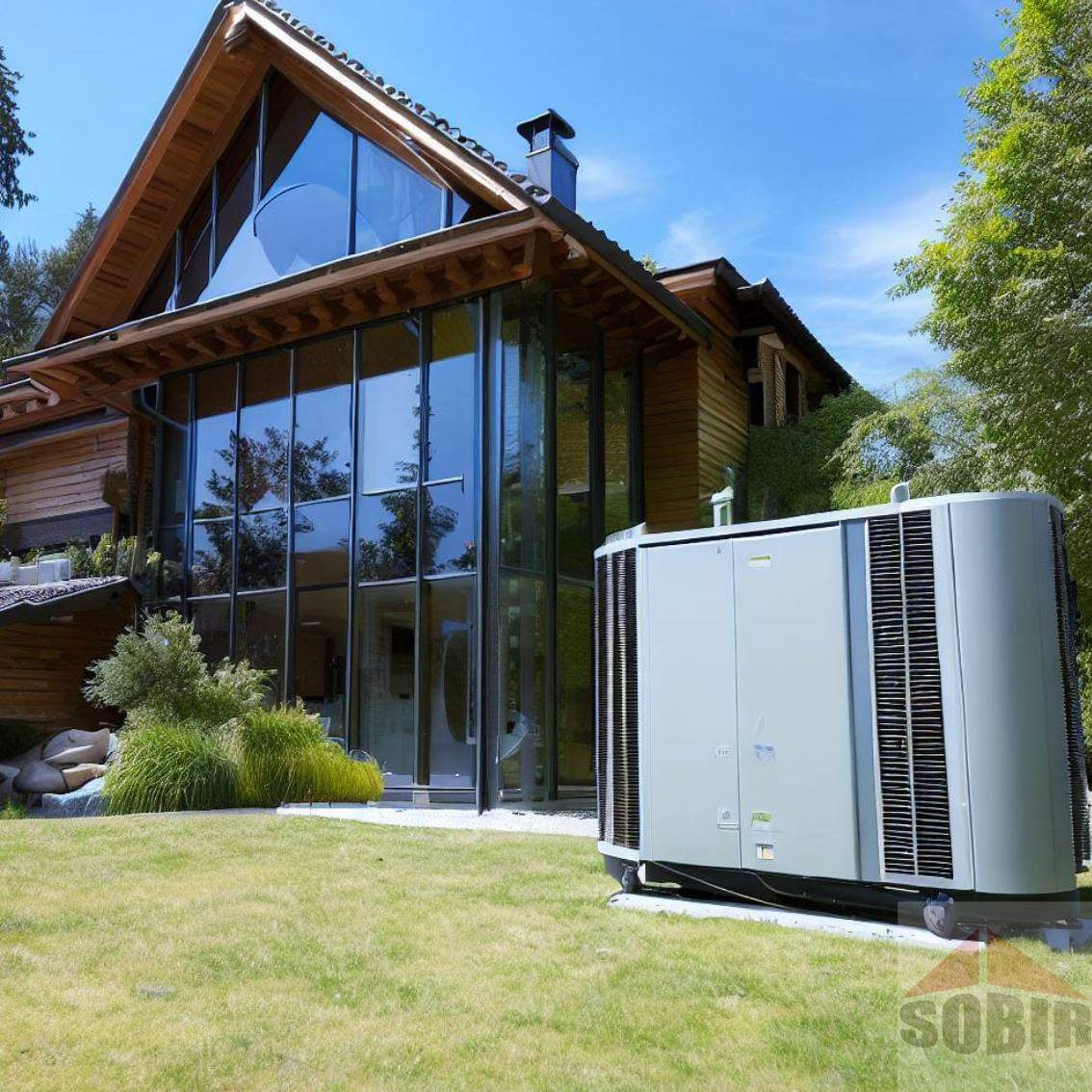Table of Contents
In today’s eco-conscious world, finding sustainable solutions for home heating and cooling is more than a trend—it’s a necessity. As homeowners search for efficient and cost-effective alternatives to traditional systems, heat pumps are emerging as the heroes of home comfort. Not only do they offer a greener option, but they also adapt seamlessly to various climatic conditions, proving their worth as a versatile choice for any season. But what exactly is a heat pump, and how can it benefit your household? Let’s dive in and explore the ins and outs of these innovative systems.
Understanding Heat Pumps: A Leap Towards Energy Efficiency
At its core, a heat pump is a device that transfers heat from one place to another, using a small amount of energy to move heat from a cool space to a warm one, making the cool space cooler and the warm space warmer. During the winter months, heat pumps extract heat from the cold outdoors with an efficiency that can provide up to three times more heat than the energy they use. Conversely, in the summer, they reverse the process, pulling heat from your home to keep you cool and comfortable. This two-way air conditioning not only streamlines the number of appliances in your home but also slashes energy consumption dramatically.
If you’re considering a heat pump for your home, you might be wondering where to begin your journey. A fantastic resource to explore is sobir.pl/pompa-ciepla/, which offers a comprehensive guide on the different types of heat pumps available, installation processes, and insightful tips on maximizing their efficiency.
Heat Pumps: A Cost-Effective Comfort
The initial investment in a heat pump might give some homeowners pause, but it’s essential to consider the long-term savings. Heat pumps are exceedingly energy-efficient, which translates to lower electricity bills. By tapping into the natural heat available in the environment, these systems reduce the reliance on fossil fuels and electricity for heating purposes, thereby offering a significant cut in energy costs over time.
Moreover, many governments offer incentives and rebates for installing energy-efficient systems, making the upfront cost of a heat pump more manageable. By visiting a site like sobir.pl, you can stay abreast of the latest information and developments in energy-efficient technologies, ensuring you make an informed decision that benefits both your wallet and the environment.
Tailoring the Right Heat Pump to Your Home
Not all heat pumps are created equal, and choosing the right one can be a game-changer for your home’s energy profile. There are various types, such as air-source, ground-source, and water-source heat pumps, each with unique benefits and best use scenarios. Air-source heat pumps are the most common and are known for their versatility and ease of installation. Ground-source, also known as geothermal heat pumps, offer unparalleled efficiency, although they come with a higher installation cost. Water-source heat pumps require access to a body of water and are less common but highly efficient in the right conditions.
When selecting a heat pump, it’s crucial to consider factors like climate, soil conditions, and the size and insulation level of your home. A thorough assessment will ensure that the heat pump operates at peak efficiency, providing comfort without excessive energy use.
Maximizing Your Heat Pump’s Performance
To get the most out of your heat pump, proper maintenance and usage are key. Simple actions like regular filter changes, system inspections, and smart thermostat usage can significantly enhance a heat pump’s performance and lifespan. By taking these steps, you ensure that your heat pump isn’t working harder than it needs to, maintaining its efficiency and cost-effectiveness throughout its service life.
Additionally, integrating your heat pump with other renewable energy sources, such as solar panels, can create a symbiotic system that further reduces your carbon footprint and energy bills. This kind of innovative thinking in home energy use is not only good for the planet but also for your personal finances in the long run.
The Environmental Impact of Heat Pumps
It’s impossible to talk about heat pumps without highlighting their environmental benefits. By using electricity to move heat rather than generate it, heat pumps have a much smaller carbon footprint than traditional heating systems. This is especially true when the electricity used is sourced from renewable energies. Furthermore, as technology advances, the refrigerants used in these systems are becoming more eco-friendly, reducing the potential for ozone depletion and global warming.
Finding the Right Information and Support
Embarking on the installation of a heat pump in your home isn’t a journey you should take alone. It’s important to seek out accurate, reliable information and professional advice. Websites like sobir.pl, with their wealth of content focused on construction, home installations, renewable energy, and gardening, can be a valuable ally. Whether you’re planning a new build, retrofitting an older home with modern technology, or simply looking for practical gardening tips, resources like this can guide you through the process and help you make decisions that align with your goals for efficiency and sustainability.
Staying Informed and Ahead
In the rapidly evolving world of home energy solutions, staying updated is crucial. Advancements in heat pump technology, changes in government incentives, and new sustainable living tips are topics you want to keep an eye on. One way to ensure you don’t miss any critical updates is to follow reliable publishers in your Google News feed. By subscribing to updates from sobir.pl on Google News, you can have the latest information delivered directly to your feed, ensuring you’re always in the loop.






